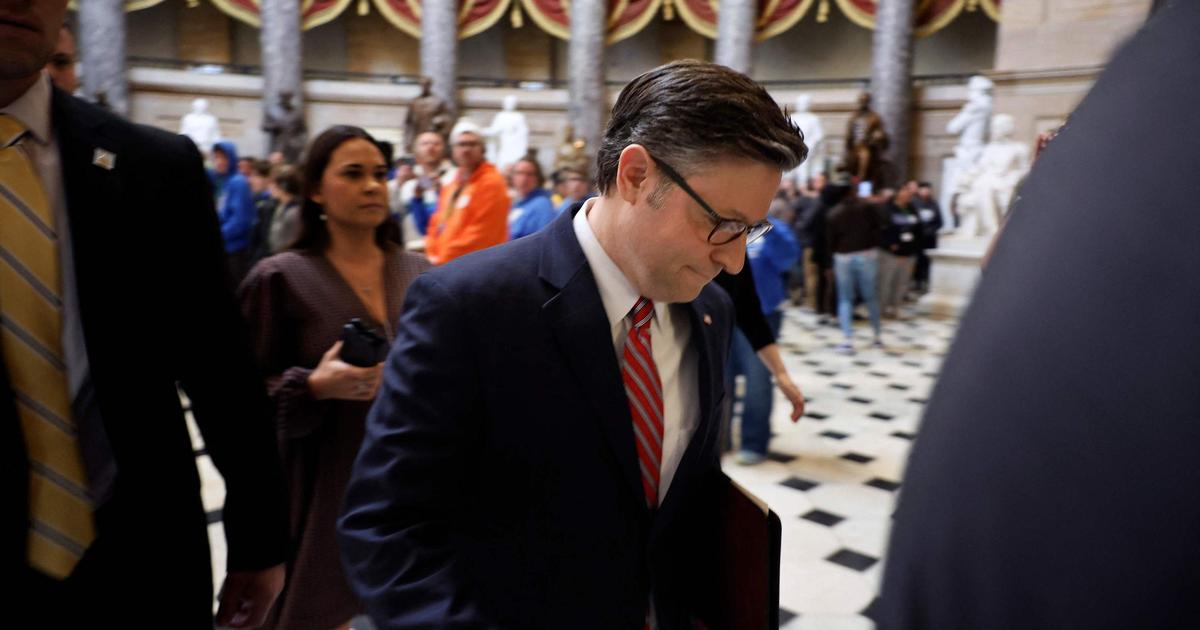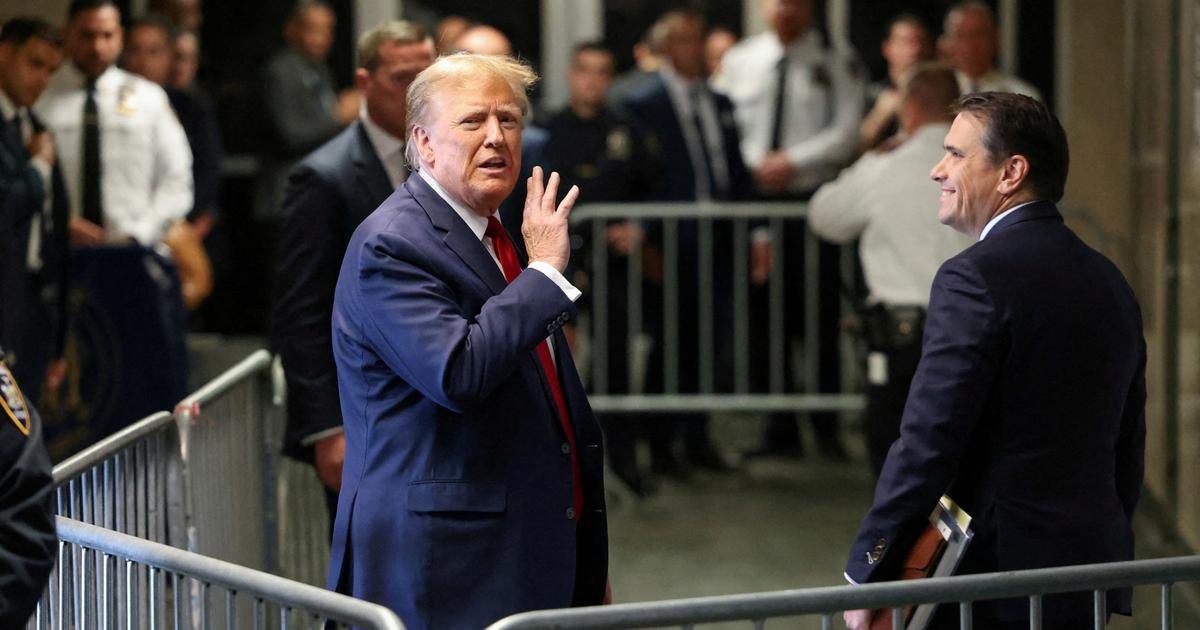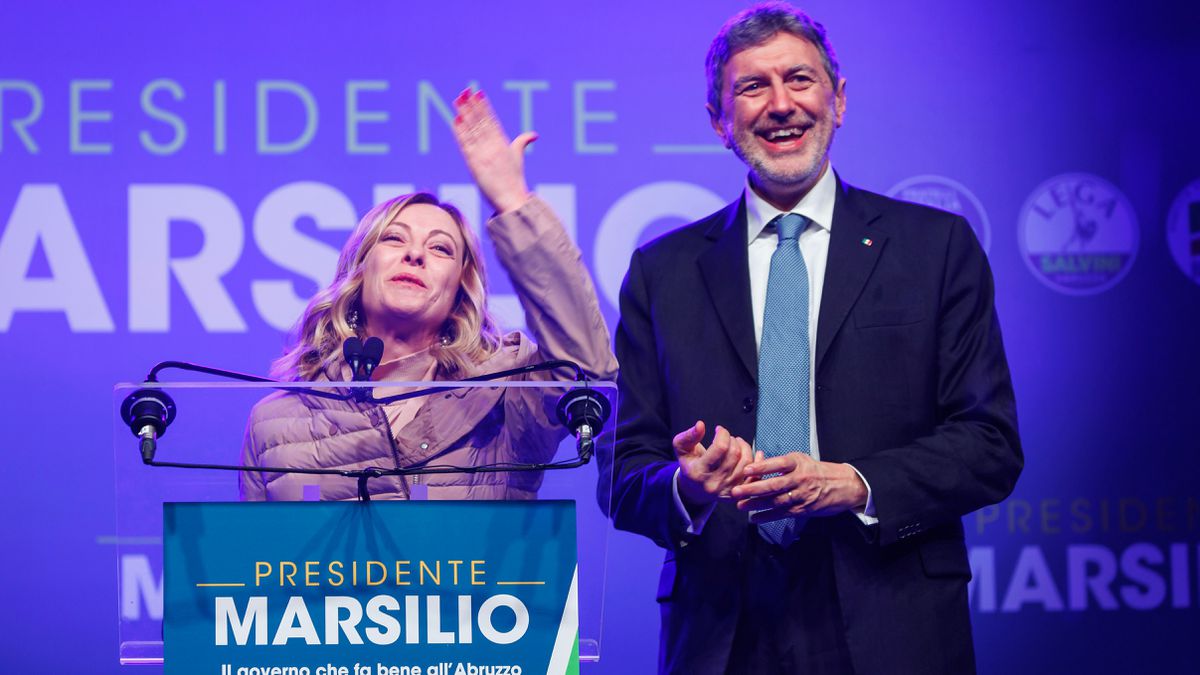A German politician used ancient Greek last night to describe the situation after the legislative elections aimed at appointing a successor to Chancellor Angela Merkel:
stasis
.
The blocking.
Each of the two candidates, the social democrat Olaf Scholz (SPD) and the conservative Armin Laschet (CDU-CSU), arrived neck and neck in the ballot box (25.9% for the first, 24.1% for the second, according to an estimate at 22:24), claims the chancellery.
Blockage?
Shortly after the announcement on German channels, at 6.30 p.m., of the first results, Laschet, the former journalist who made a final campaign blunder yesterday by unveiling his filled ballot in front of the cameras, proclaimed from the Berlin HQ of the CDU its determination to be the next chancellor.
Despite the historic setback of Angela Merkel's party (present without excess of joy alongside Laschet on the rostrum, in front of a half-fig, half-grape assembly), the curator assured that he "will do everything possible to form a government ".
No question therefore for him to concede defeat.
Parliamentary elections in Germany
In the process, Olaf Scholz rushed to the HQ of the SPD to pose himself as future chancellor, in the concert of horns of Berliners, city of the left.
Once again donning the costume of the outgoing chancellor, the leader of the German left praised the "pragmatism", "reliability" and "ability to govern" of his party.
On paper, it is bolstered by its lead in terms of votes and undoubtedly seats in the future Assembly - given the complexity of the German electoral system, we had to wait for the last counts overnight to be sure.
However, it is not guaranteed to win the arm wrestling left / right.
No one wants to see the SPD-CDU hitch again
According to tradition, it is the leader of the leading party who leads the negotiations with the other parties to build a coalition.
A tradition, not a constitutional obligation, the German fundamental law being silent on this subject.
It has also happened (especially with former Chancellor Helmut Kohl) that the winner of the ballot box is not ultimately Chancellor.
It is the game of political power relations that will predominate.
Read also Merkel's succession: in France, a German election watched very closely
From this morning, negotiations with the other parties (Greens, Liberals of the FDP, extreme left Die Linke if it manages to keep deputies) will start, to distribute the ministerial portfolios and establish the coalition contract, a document of some 200 pages providing in detail the policies to be followed. They can last for weeks or even months. After the 2017 poll, it took 171 days for Angela Merkel to be returned to the chancellery, at the head of a CDU-SPD coalition. This time, the two parties say they want to complete “before Christmas”. Given the scattering of seats, it will take three parties to achieve a majority.
Between Olaf Scholz and Armin Laschet, it will be the one who convinces potential partners that he has the best political dynamic.
Such was the object, late last night on German television, of the “round of the elephants”: an exercise in which the party leaders parade on the sets.
Here again, Scholz has an advantage, having come first yesterday, after being dumped in the polls with his dying SPD.
While Laschet squandered Merkel's trust capital with the Germans, causing the CDU to fall by more than 8%.
What possible coalitions, knowing that neither the leaders nor the voters want to review the soothing SPD-CDU team?
The Greens and the Liberals have a card to play
In this game of chess, the king-making parties, the Greens and the Liberals, despite their inclination to the left for the former, to the right for the latter, can conduct several negotiations in parallel, both with Scholz and Laschet. And therefore raise the stakes for the coalition contract. Scholz intends to carry out his social and ecological policy with the Greens, but does not rule out involving the FDP (11.7%), considered more reliable than Die Linke - who wants to get out of NATO, a taboo for the Germans . But the liberals reject the planned tax increases, on the contrary want to lower them! Laschet is on the same line, but he also needs the Greens, a new third essential force with some 14% - knowing that no one wants to make a pact with the far right AfD… In short,the whole stake for the two rivals will be to know what concessions they are ready to accept in order to win the Grail of the Chancellery.
Read also Legislative elections in Germany: a campaign without the word Islam
In any case, the deputies elected or re-elected yesterday will meet at the latest on October 26 in the Reichstag (the historic building where the Bundestag is located) for their inaugural sitting.
When the time comes, they will elect the Chancellor by absolute majority.
Unless a total blockage forces the President of the Republic Steinmeier to dissolve the Assembly and call new elections ...









